- 0086-571-85302990
- sales@greenskybio.com
The best organic konjac powder.
2024-11-28

Introduction
Organic konjac flour has been increasingly popular in recent years. This is mainly because it brings a great deal of health benefits and can be used in various ways. When looking for the best organic konjac flour, multiple factors need to be considered.
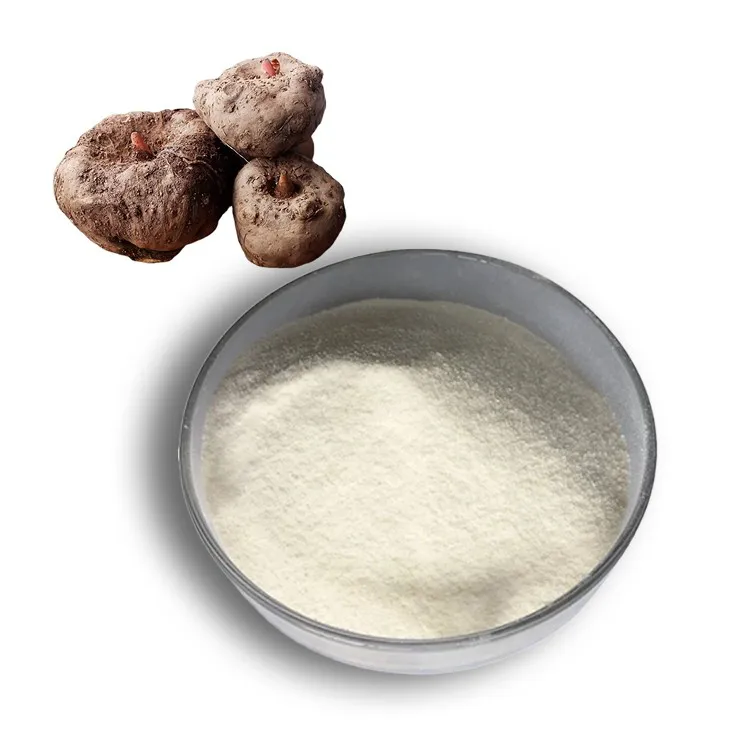
Source Quality
The origin of the konjac plants is of utmost importance. Konjac plants should be cultivated in clean and unpolluted areas. This means they should be free from pesticides and chemical fertilizers.
When konjac plants grow in such a pure environment, the resulting flour is guaranteed to be pure. It can also maintain all of its natural advantages. For example, organic konjac flour is rich in fiber, and this fiber content can be well - preserved when the source is of high quality.
Moreover, organic farming methods play a significant role in the sustainability of the ecosystem where konjac is grown. Organic farming not only benefits the growth of konjac plants but also has a positive impact on the surrounding environment. It helps to protect the biodiversity of the area, promotes soil health, and reduces water pollution.
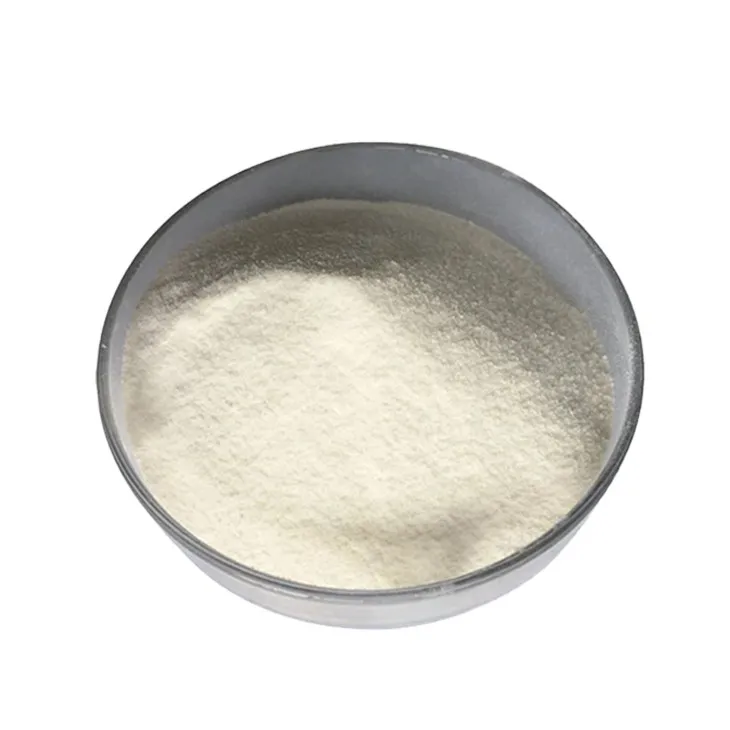
Production Process
The production process is another key factor in determining the quality of organic konjac flour.
Preserving Nutritional Content
Advanced processing techniques are highly preferred. These techniques should be able to preserve the nutritional content of konjac flour. High - fiber content is one of the most important nutritional aspects of konjac flour. A good production process will ensure that this high - fiber content is maintained.
Texture
The texture of the organic konjac flour also matters. High - quality organic konjac flour usually has a fine texture. This fine texture makes it extremely convenient to use in different recipes.
For instance, when making healthy konjac noodles, the fine - textured flour can be easily shaped into noodles. When making jellies, it can blend well with other ingredients to form a smooth and elastic texture. Also, when used as a thickening agent in cooking, it can evenly disperse in the liquid and thicken it effectively without causing lumps.
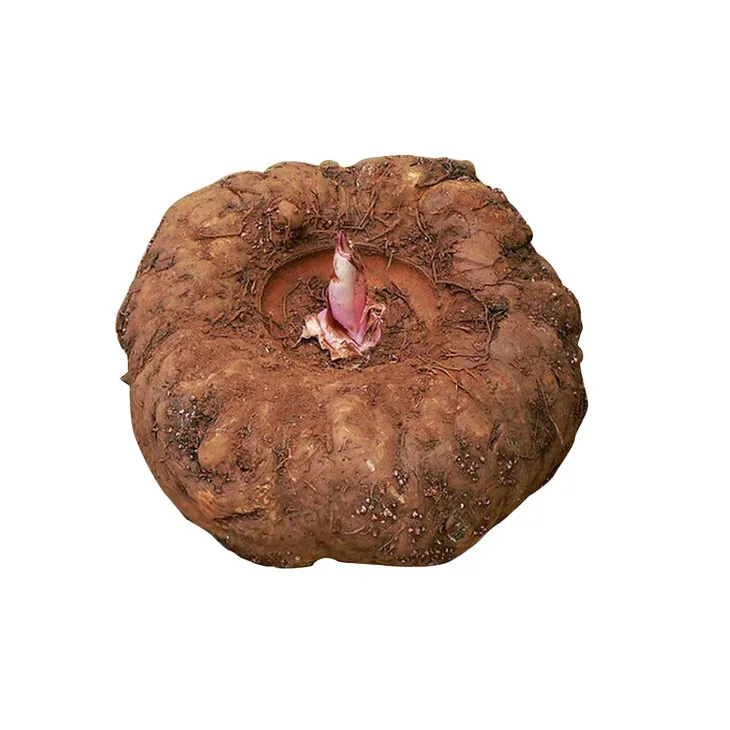
Brand Reputation
Brand reputation is an aspect that cannot be ignored when choosing the best organic konjac flour.
Quality Control
Brands that are dedicated to quality control are more likely to produce excellent organic konjac flour. These brands will have strict standards in every step of the production process, from sourcing the konjac plants to the final packaging of the flour. They will ensure that the product meets the highest quality requirements.
Transparency in Sourcing
Brands with transparency in sourcing are also more trustworthy. They are willing to disclose where their konjac plants are sourced from, how they are cultivated, and what kind of production processes are used. This transparency gives consumers confidence in the product.
Customer Reviews
Positive customer reviews are a good indication of a brand's quality. Brands that receive a lot of positive feedback from customers usually offer high - quality organic konjac flour. These reviews can cover various aspects, such as the taste, texture, and health benefits of the konjac flour.
For example, customers may praise a brand for its konjac flour that has a great taste when used in cooking, or they may mention that the flour has effectively helped them with their diet due to its high - fiber content. Brands often conduct strict tests to ensure the authenticity and purity of their products. These tests can include checking for the presence of any contaminants, verifying the fiber content, and ensuring that the product is truly organic.
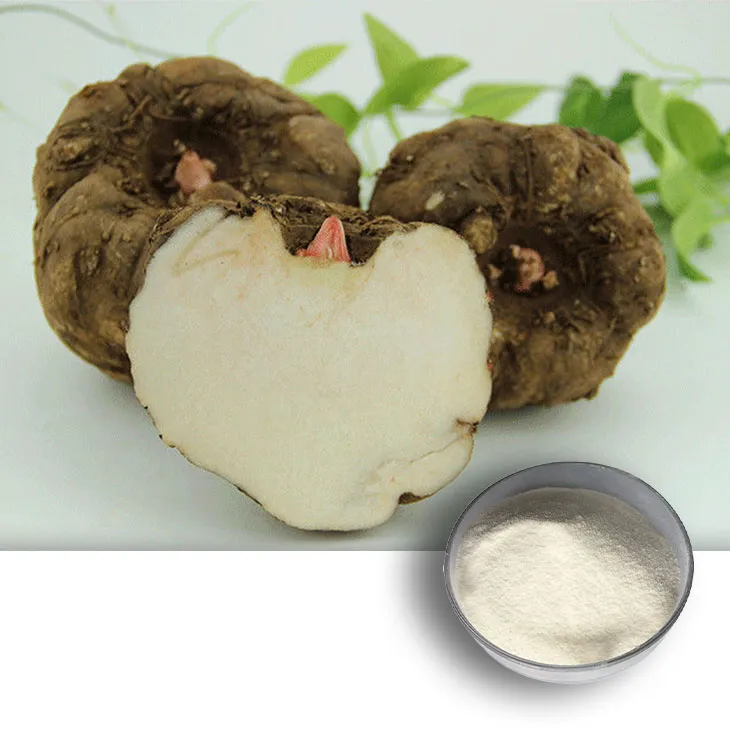
Conclusion
In summary, the best organic konjac flour is a combination of several elements. It must come from high - quality sources, which means the konjac plants are grown in a clean and unpolluted environment without the use of pesticides and chemical fertilizers. The production process should be excellent, using advanced techniques to preserve the nutritional content and ensure a fine texture. Moreover, it should be from a reliable brand that is committed to quality control, has transparency in sourcing, and has positive customer reviews.
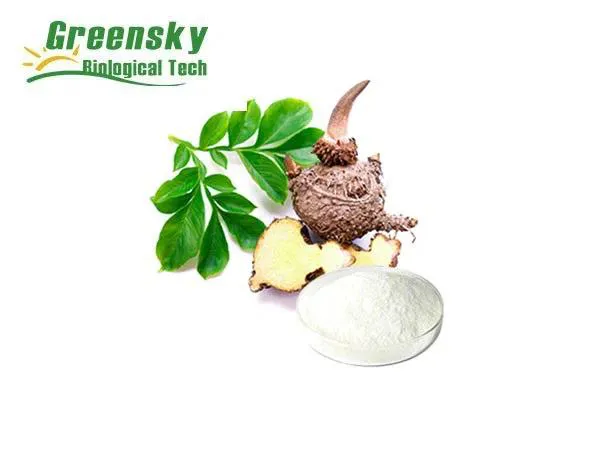
FAQ:
What are the health benefits of organic konjac flour?
Organic konjac flour has several health benefits. It is high in fiber, which can aid in digestion and help with weight management by providing a feeling of fullness. It may also be beneficial for blood sugar control and cholesterol reduction.
How can you tell if konjac flour is truly organic?
To determine if konjac flour is truly organic, you can look for organic certifications on the product packaging. Reputable brands that are committed to quality control and transparency in sourcing are more likely to offer truly organic products. Additionally, research on the brand's farming and production practices can provide more clues.
What makes the texture of high - quality organic konjac flour fine?
The production process plays a key role in determining the texture of organic konjac flour. Advanced processing techniques that preserve the natural properties of the konjac can result in a fine texture. This allows it to be easily incorporated into various recipes, such as for making smooth konjac noodles or jellies.
Can organic konjac flour be used as a substitute for other flours?
Yes, in some cases, organic konjac flour can be used as a substitute for other flours. It has unique thickening properties and can be used in cooking and baking in place of traditional flours. However, it has a different taste and texture compared to wheat or other common flours, so it may not be a direct one - to - one substitute in all recipes.
How should organic konjac flour be stored?
Organic konjac flour should be stored in a cool, dry place, away from direct sunlight. It is best to keep it in an airtight container to prevent moisture absorption and spoilage. Following proper storage guidelines will help maintain its quality and freshness for a longer period.
Related literature
- The Nutritional Value of Konjac Flour in Organic Farming"
- "Organic Konjac Flour: Production and Quality Standards"
- "Health - Promoting Properties of Organic Konjac - Based Products"
- ▶ Hesperidin
- ▶ citrus bioflavonoids
- ▶ plant extract
- ▶ lycopene
- ▶ Diosmin
- ▶ Grape seed extract
- ▶ Sea buckthorn Juice Powder
- ▶ Beetroot powder
- ▶ Hops Extract
- ▶ Artichoke Extract
- ▶ Reishi mushroom extract
- ▶ Astaxanthin
- ▶ Green Tea Extract
- ▶ Curcumin Extract
- ▶ Horse Chestnut Extract
- ▶ Other Problems
- ▶ Boswellia Serrata Extract
- ▶ Resveratrol Extract
- ▶ Marigold Extract
- ▶ Grape Leaf Extract
- ▶ blog3
- ▶ blog4
-
Chinese melatonin factories.
2024-11-28
-
Certified organic kidney bean extract.
2024-11-28
-
Stevia Extract
2024-11-28
-
Maitake Mushroom Extract
2024-11-28
-
Eucommia Ulmoides Extract
2024-11-28
-
Camu Camu Extract
2024-11-28
-
Buckthorn bark extract
2024-11-28
-
Tormentil Extract
2024-11-28
-
Red Vine Extract
2024-11-28
-
Yam Extract
2024-11-28
-
Kupilu Extract
2024-11-28
-
Lily extract
2024-11-28





















